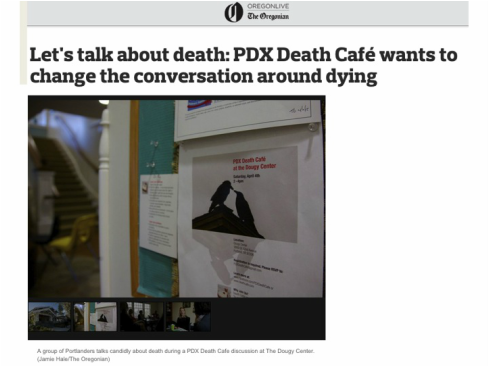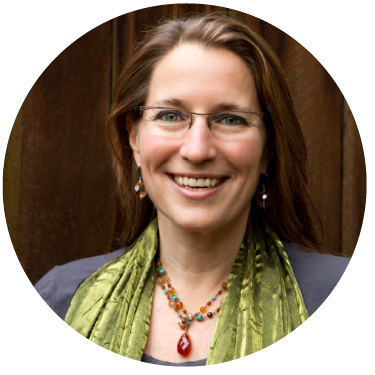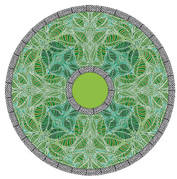 click image to see other photos from the article
click image to see other photos from the article Let's talk about death: PDX Death Café wants to change the conversation around dying
by Jamie Hale, April 6, 2015
I can vaguely remember the church where his body lay, hidden away in a casket by the altar. I don't remember it being a big ceremony, just a gathering of people who knew him, some standing stoically, others wiping tears from their cheeks. My grandfather was 79 when he died of lung cancer. I was 7.
I hardly knew the man. He lived in Texas and we lived in Oregon. I met him maybe twice in my life, but still his death hit me hard. He was gone. Forever. I never really met him and I never really would. It was all so devastatingly permanent. My childhood mind could hardly comprehend it, but I mourned just the same, a hollow sorrow boring into my chest.
That's the power death holds. It slips the deceased swiftly away, leaving a cruel chill over the survivors, rightly robbing us of our sense of immortality. It's a reminder that one day, perhaps without warning, we too will be lifeless in that casket, and our grandchildren, who we may hardly know, will sob uncontrollably at the back of the room too.
We don't like to talk about the end of our lives, for fear that it might stop us from actually living them. But there's a growing movement in the country that sees it another way, a group that finds a sort of freedom in the acceptance of finality. Here, in Portland, they gather for tea and conversation, gatherings they call the PDX Death Café.
Let's Talk About Death
I decided to attend the most recent café on the Saturday before Easter, and despite the holiday weekend, a crowd of more than 35 showed up, including nearly a dozen people to facilitate the conversations. We didn't meet in an actual café (although organizers told me they often do) instead congregating at The Dougy Center in southeast Portland, a community organization that helps kids and families grieve.
But these events aren't meant to be grief counseling, Death Café organizer Holly Pruett told me before it began. They're an opportunity to talk openly about death without stigma, ideology or conflict, gaining fresh perspectives and growing in the process. Everyone agrees to be respectful and pledges confidentiality -- what happens in the group stays in the group.
That last part put me, a journalist covering the event, in an uncomfortable spot. Before I go on, I'd like to note that everybody in my group of seven gave permission to share our experience, so long as I don't use names or obvious descriptors. It's not like there were any secrets being told, but as it turns out, a discussion about death can get very personal very fast.
Our facilitator, a kind woman with a calm demeanor, asked us each to share a death that was particularly meaningful. As we went around the table we heard stories of friends, mothers, fathers, brothers, husbands and spiritual leaders. The stories of the deaths were powerful, but they were just jumping off points, meant to take us into uncharted waters within ourselves and with each other.
One older woman explained the feeling she had after her brother died. It was like a dark hole in her chest, she said, but in a moment she felt a sense of freedom for her brother, and in turn freedom for herself.
Across the table a mother of four explained how the loss of her husband tore her apart. Her family suffered greatly, but the real shock came when her extended family and friends turned away, she said. They didn't know what to say, and quite frankly, all the grieving made them uncomfortable.
There's a stigma around death, a man in the group suggested. There's this notion that dying is a failure.
But, of course, we all die, another piped up. We all fail eventually. Why not re-frame our thinking to see death as inevitable, and actually prepare ourselves and our families for the big day?
Fighting the Fear of Dying
It's a tricky subject. As our group discussed, not everybody wants to talk about death. One woman said she tried to talk to her father about it as he was sick in the hospital, but he refused. He just wasn't ready, he told her. He didn't want to think about it.
You have to respect that decision, but these Death Cafés (nearly 2,000 have taken place, all around the world) were founded with the goal of creating a less "death phobic world," Pruett told me.
"People just find it so useful, (hearing) what's on other people's minds about death and hearing other perspectives," she said. "We should bring discussion about death into the public square."
Two years ago she and her fellow organizers did just that, bringing the international Death Café model to Portland, immediately attracting big crowds. At the very first event 100 people showed up, a number that has remained more or less consistent ever since.
The attraction has left them hopeful that people are ready to be open about death, and can be vulnerable with each other about such a sensitive subject. Still, Pruett said there's a long way to go before discussion about death and grief is normalized in our larger society.
It's strange that something so common can seem so uncomfortable. Death is an experience we all share, yet we're hesitant to talk to even our own parents about it. Many in our group admitted that it was easier talking with strangers than with our families. It's understandably a sad subject, but what if talking about it freed us from the sadness?
I asked Pruett the maddeningly simple question, the one that stops us from having these kinds of conversations all the time: Why is it important that we talk about death? She smiled, and replied without missing a beat. "Because generally we don't."
The PDX Death Cafés are open to all who are interested. The next events will be on June 7 and June 16. Go to the group's Facebook page or email [email protected] for more information.




 RSS Feed
RSS Feed